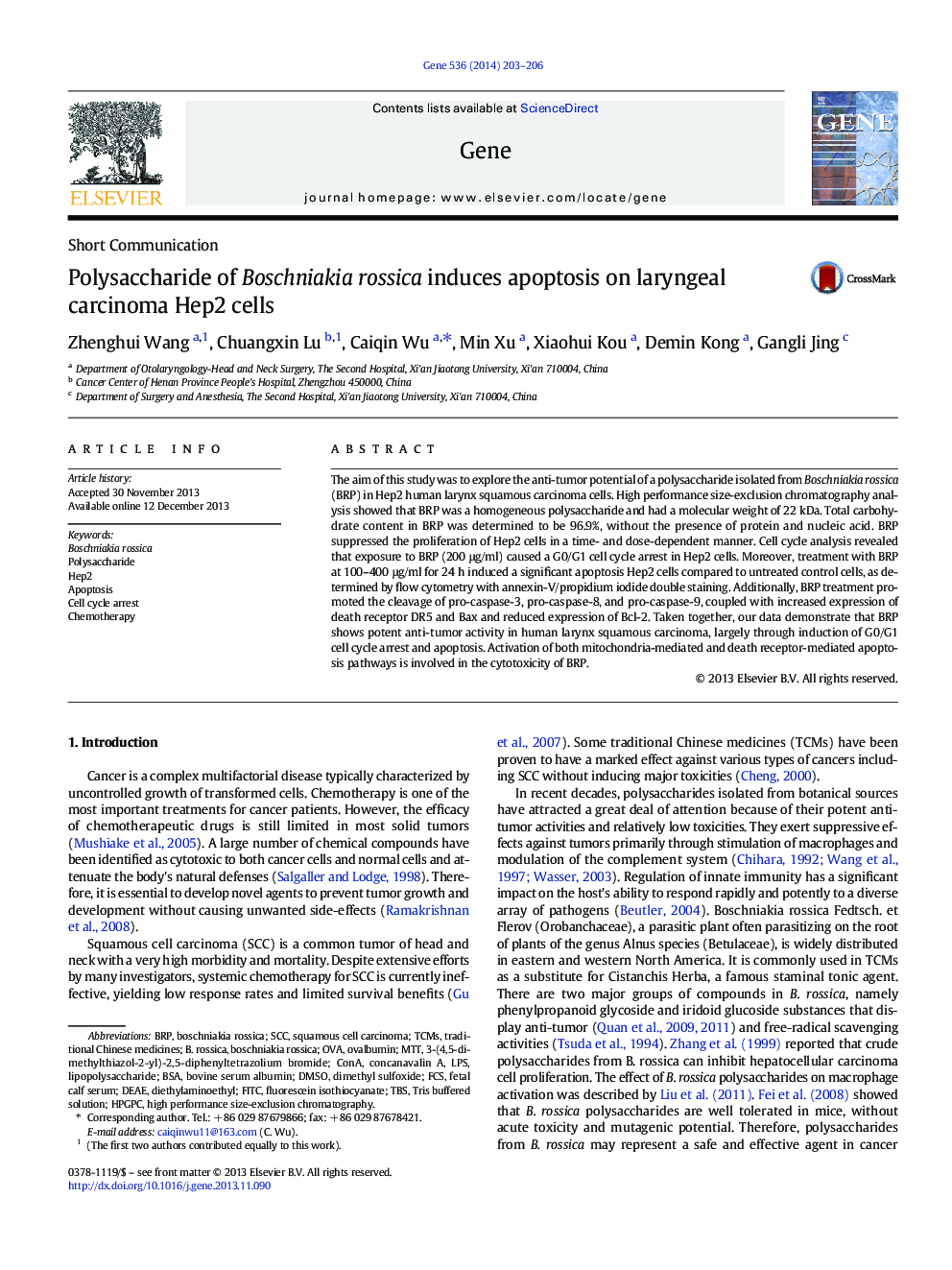| Article ID | Journal | Published Year | Pages | File Type |
|---|---|---|---|---|
| 2816645 | Gene | 2014 | 4 Pages |
•Isolation and chemical characterization of a polysaccharide (BRP) from Boschniakia rossica.•BRP inhibits the proliferation of Hep2 cells in a time- and dose-dependent manner.•BRP causes a cell-cycle arrest at the G0/G1 phase in Hep2 cells.•The pro-apoptotic effect of BRP is associated with activation of both the mitochondria-mediated and death receptor-mediated apoptosis pathways.
The aim of this study was to explore the anti-tumor potential of a polysaccharide isolated from Boschniakia rossica (BRP) in Hep2 human larynx squamous carcinoma cells. High performance size-exclusion chromatography analysis showed that BRP was a homogeneous polysaccharide and had a molecular weight of 22 kDa. Total carbohydrate content in BRP was determined to be 96.9%, without the presence of protein and nucleic acid. BRP suppressed the proliferation of Hep2 cells in a time- and dose-dependent manner. Cell cycle analysis revealed that exposure to BRP (200 μg/ml) caused a G0/G1 cell cycle arrest in Hep2 cells. Moreover, treatment with BRP at 100–400 μg/ml for 24 h induced a significant apoptosis Hep2 cells compared to untreated control cells, as determined by flow cytometry with annexin-V/propidium iodide double staining. Additionally, BRP treatment promoted the cleavage of pro-caspase-3, pro-caspase-8, and pro-caspase-9, coupled with increased expression of death receptor DR5 and Bax and reduced expression of Bcl-2. Taken together, our data demonstrate that BRP shows potent anti-tumor activity in human larynx squamous carcinoma, largely through induction of G0/G1 cell cycle arrest and apoptosis. Activation of both mitochondria-mediated and death receptor-mediated apoptosis pathways is involved in the cytotoxicity of BRP.
